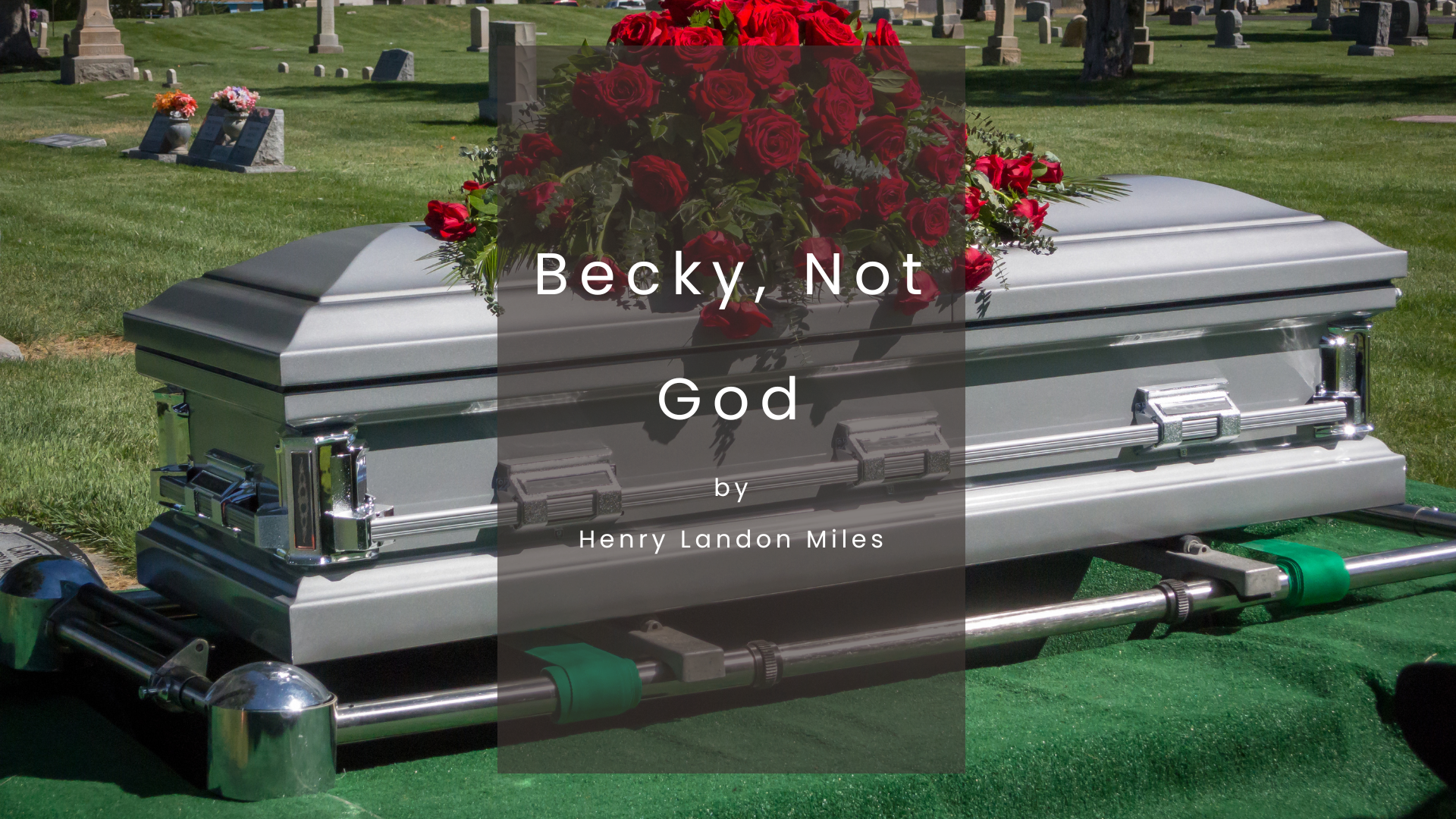Articles/Essays – Volume 53, No. 3
Becky, Not God
set the hour for their reunion.
She’s under the green
canopy in the closed coffin.
She signed away her body,
except for her skin,
so her hip bones might be recycled
into screws to repair broken ankles
or wedges to fuse spines
or to let others bend on her knees.
Are those Navajos?
One is wearing a jacket
with Navajo Nation Fair on the back.
I look over her mourners,
hoping my prayer
will be apt.
What did Becky believe?
What do her gathering
people believe?
Bishop Tillack chokes up
on Mormon words
for a woman he has never met.
The man in the Navajo jacket (as she willed),
stands at her coffin,
speaks a language I do not understand,
places beads, backs away,
picks up an eagle’s wing,
brushes coffin, grass, chairs, and Grandma Laura.
He lights the smudge
aromas of sage, tobacco, and sweet grass
intermingle.
He eagle wings the cleansing smoke
over her sacred space,
sits down with four men
around a rawhide drum.
They lay their wood sticks on the drum,
chant long aye, aye, ayes and oh, oh, ohs for Becky.
The five men grasp their sticks,
thump an unrelenting beat and
beat and chant evoke for her
a path of music up the pines
while a Navajo woman looks on.
One man chants solo and four answer back.
A distant diesel draws near and
steel wheels on steel rails and air whistle blasts
erase beat and chant
like the diesel paused the bishop
in his ceremony half an hour ago.
As steel turns to irony
I ponder the coffin in which
lie and yet lie not
the remains of Becky, age 29.
A version of this poem was previously published in Touchstones 9, no. 2 (Spring 2005): 49–51.


 Back to full Issue
Back to full Issue

